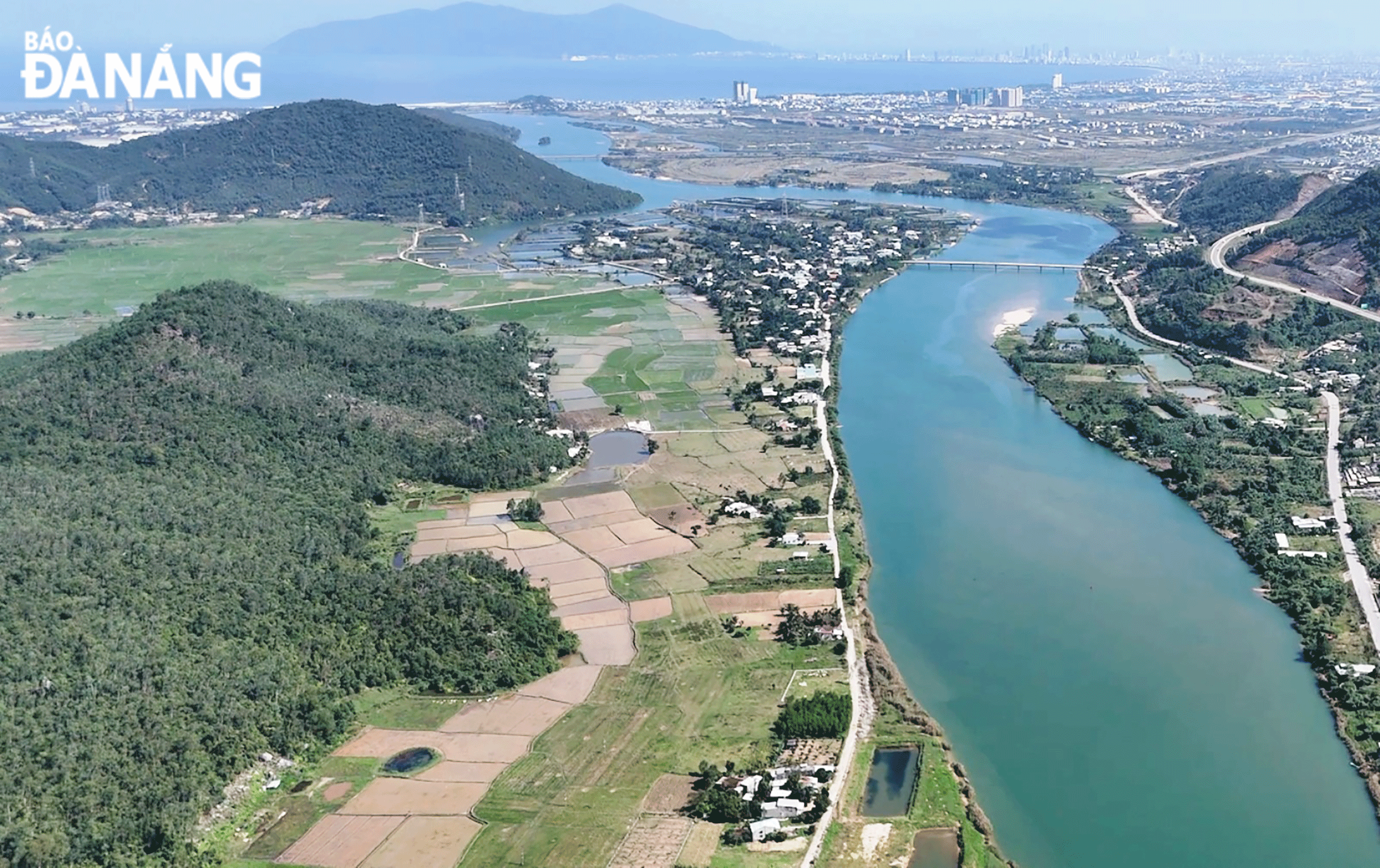Special land policies contribute to Da Nang rapid development
Under Resolution No. 136/2024/QH15 of the National Assembly on the urban government organisation and the piloting of a number of special mechanisms and policies for the development of Da Nang, the city is allowed to reclaim land to form a logistics centre and carry out land acquisition preparations in advance to build industrial parks, high-tech parks, concentrated information technology parks, logistics centres, traffic infrastructure, urban areas, and functional areas of the soon-to-be-developed Free Trade Zone. Such special land policies are expected to promote the rapid growth of the central coastal city in the future.
 |
| The city is allowed by the National Assembly to carry out in advance the preparation work of land acquisition to build industrial parks, logistics centres. IN PHOTO: An area in Hoa Lien Commune, Hoa Vang District, is being considered for selection to build a logistics hub, and a production area in the Da Nang Free Trade Zone. Photo: HOANG HIEP |
A logistics hub is a central point for logistics operations in the area in which it is located. This is not simply a warehouse for storing goods or infrastructure for providing logistics services, but the hub usually brings together all facilities, architecture and techniques that perform tasks related to the flow of goods, serving the logistics service industry.
In the spirit of the Politburo’s Resolution No. 43-NQ/TW dated January 24, 2019 on building and developing Da Nang by 2030, with a vision towards 2045, and the city’s master plan for the 2021-2030 period, with a vision to 2050, Da Nang eyes becoming a logistics hub in Central Viet Nam. On the other hand, the logistics hub is also a functional area of the soon-to-be-developed Da Nang Free Trade Zone.
Therefore, it is necessary to form a concentrated, high-quality logistics hub to provide specialised logistics services (according to the 3PL, 4PL, 5PL models) with high added value in a bid to maximize the advantages of goods through transportation hubs in the city.
In fact, the implementation of projects on establishing a logistics hub is facing many difficulties and obstacles in land acquisition.
According to Deputy Director of the municipal Department of Natural Resources and Environment Vo Nguyen Chuong, the biggest problem with the formation of logistics hub is that in the list of projects for which the State will acquire land according to the provisions of the 2013 Land Law (Article 62) and the 2024 Land Law (Article 79), there are no transport infrastructure, trade and service projects such as logistics hub.
In order to create a breakthrough development for Da Nang and be commensurate with its role as a logistics hub in the central region, the formation of the logistics hub is very important.
Therefore, in Resolution No. 136/2024/QH15, the National Assembly agreed that land acquisition for the construction of items and works to form a logistics hub shall be carried out in accordance with the provisions of Article 79 of the 2024 Land Law. Land acquisition for the implementation of the Da Nang Free Trade Zone shall also be in accordance with Article 79 of the 2024 Land Law. The order and procedures for preparing land acquisition for the implementation of the Da Nang Free Trade Zone shall be carried out in accordance with Resolution No. 136/2024/QH15.
According to Mr. Vo Nguyen Chuong, in Resolution No. 136/2024/QH15, investors choosing projects that are leased land by the municipal People's Committee have the same rights and obligations as investors who are leased land by the State to implement their projects on the construction and business of industrial park infrastructure. Investors who sublease land have the same rights and obligations as those who sublease land attached to infrastructure in industrial parks.
“These new mechanisms and policies have removed the obstacles that investors are facing" said Mr. Chuong.
Reporting by HOANG HIEP - Translating by M.DUNG